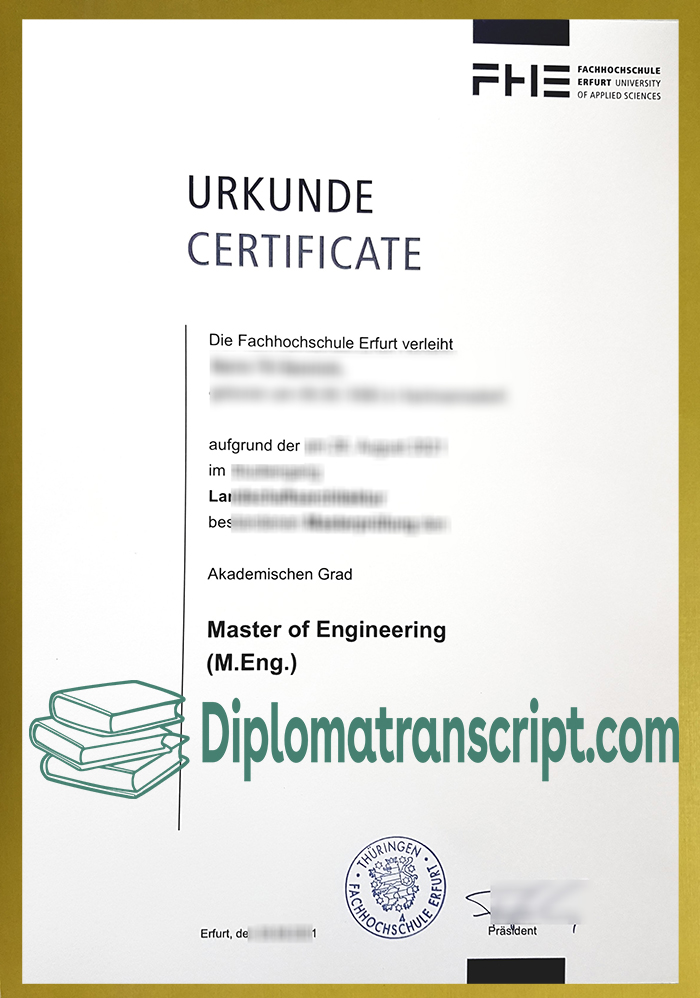
The Erfurt University of Applied Sciences (Fachhochschule Erfurt) is a standard professional college in Thuringia, Buy a Fachhochschule Erfurt Urkunde. and is classified as one of the three well-known professional colleges in Thuringia. Its predecessor was the Prussian Royal School of Building Engineers (königlich – preußische Baugewerkschule Erfurt) founded in 1901. In 1991, the school, together with the School of Engineering and the School of Horticulture and Urban Construction founded in 1946 and 1947, constituted four of the six basic departments of the current Erfurt University of Applied Sciences. There are about 4,500 students on campus, with about 1,000 new students each year, of which 5% come from other countries. The school has six major departments: Department of Architecture and Urban Planning, Department of Civil Engineering and Building Maintenance Engineering, Department of Housing Technology and Information Engineering, Department of Land Architecture, Department of Landscape Architecture, Department of Applied Social Sciences, Department of Economics-Logistics-Transportation, with a total of 16 undergraduate majors and 18 master’s majors. How to get a Fachhochschule Erfurt degree and transcript? Buy a RWTH Aachen University Urkunde.
Undergraduate majors
Buy a Fachhochschule Erfurt diploma online. Applied informatics, architecture, civil engineering, children’s education, business management, railway engineering, forestry and ecosystem management, gardening, construction and energy technology/renewable energy, protection and restoration, landscape architecture, social work, urban and rural planning, economic engineering-transportation, transportation and logistics, transportation informatics, economic engineering-construction and energy technology.
Master’s majors
Applied informatics, architecture, business administration, European railway system, finance and accounting, construction and energy technology, intelligent transportation system and mobility management, protection and restoration, engineering construction (civil engineering), management and urban infrastructure (civil engineering), landscape architecture, material circulation and logistics, social work, urban and rural planning, renewable energy design.








 Find Answer Here
Find Answer Here